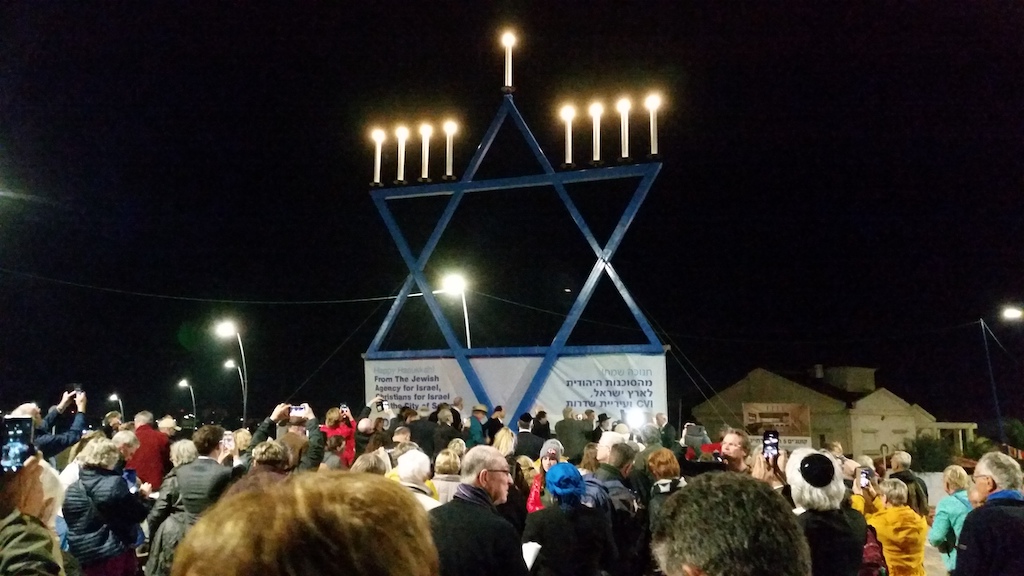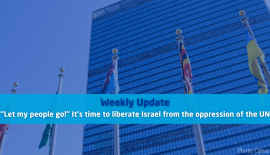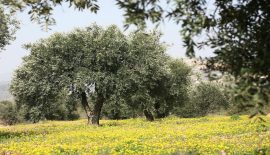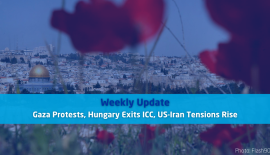Hanukkah – Festival of Lights for Jews and Christians
The Festival of Lights is one of the most important holidays of Judaism and starts every year at 25 Kislev, the third month of the Jewish calendar. In 2023 this eight-day festival takes place from 8th through the 15th of December.
“Hanukkah means “Dedication” and commemorates the rededication of the second Jewish Temple in Jerusalem in the Jewish year 3597 (164 BC)”
The Hebrew word “Hanukkah” means “Dedication”. This festival has its roots in Jewish history and commemorates the rededication of the second Jewish Temple in Jerusalem in the Jewish year 3597 (164 BC). According to rabbinic tradition the Jews, who cleaned up the recaptured Temple, found only a one-day supply of oil to light the eternal light in the Temple, the Menorah. Ultimately the oil miraculously lasted eight days and nights. That is why Hanukkah is an eight-day festival.
Although the Jewish feast of Hanukkah is not mentioned in the Book of Leviticus and in other passages (parashot) of the Torah, it is most certainly a feast that can be celebrated by Jews and Christians together.
This festival of rededication is mentioned in the Book of John. We read that Jesus celebrated this festival (John 10: 22-23). In other verses he explains how certain elements, e.g. the water ceremony and the bringing of the light in the Temple, are connected to Jesus.
“Hanukkah and Christmas are both festivals of light”
The festival of Hanukkah takes place in December, just like Christmas. Both are festivals of light. Light brought into the world when people start to serve the God of Israel, in the way He likes to be served.
Why does the Festival of Lights appeal to Jews and Christians? Because we both have today more and more the same enemies. To understand this we have to look back in history. What is the background and reason of the Festival of Lights? Who is this mutual enemy?
The Festival of Lights started during the Israeli oppression by the ancient Greek kingdom of Macedon, in the final days of Alexander the Great. In those days Israel was military and culturally occupied by this kingdom. The Greek spirit of Hellenism was ultimately continued by the successors of Alexander the Great, The Seleucid Empire, and violently forced upon the Jewish people by use of capital punishment. All Jewish customs, like the Sabbath, circumcision was prohibited. We can read about this in the Book of 1 Maccabees 1:56-63. Amongst others it says: “The women who circumcised their children were killed, in keeping with the decree. The parents were killed in their homes, and the children were hung from their necks. But many from the people of Israel were steadfast and refused to eat non-kosher food. They would rather die instead of defiling themselves, and refused to deviate from God’s law, that is why they were killed.”
“The Orthodox Jews went to war in order to free themselves of the Greek yoke”
The Seleucids maintained that their Greek Hellenism/Humanism was the source of their civilization. Ultimately the Orthodox Jews went to war in order to free themselves of the Greek yoke. In the 1st and 2nd Book of the Maccabees (apocrypha) these events are told. The Jewish-Hellenistic writer Flavius Josephus writes about this as well.
In the year 168 BC under the rule of Antiochus the 2nd, the Second Temple was defiled. A statue of the Greek god Zeus was erected, pigs were sacrificed in the Temple – it was an “abomination causing desolation”.
The priest Mattathias and his five sons, amongst others Judas (Maccabee), led the revolt of the Maccabees, the pious Jews, against Antiochus and they miraculously triumphed in 165 BC, exactly three years after the Temple was defiled. During their conquest of Jerusalem they were horrified to see the degraded state of the holy city and the Temple. “They found the sanctuary desolate, the altar desecrated, the gates burnt, weeds growing in the courts as in a thicket or on some mountain, and the priests’ chambers demolished. Then they tore their garments and made great lamentation; they sprinkled their heads with ashes and prostrated themselves. And when the signal was given with trumpets, they cried out to Heaven.” (1 Maccabees 4:38-40).
Judas Maccabee appointed a couple of priests who cleansed the Temple, brought down the heathen altar, and erected a new altar according to Jewish Law, the Torah. They consecrated the inside of the Temple and the courts, had new vessels made, and brought the Menorah, the burnt offering altar and the table into the Temple. Finally the Temple was festively inaugurated to serve the God of Israel.
The festivities of this rededication lasted eight days. “For eight days they celebrated the dedication of the altar and joyfully offered burnt offerings and sacrifices of deliverance and praise. There was great joy among the people now that the disgrace brought by the Gentiles was removed.” (1 Maccabees 4: 56 and 58).
Flavius Josephus called Hanukkah “The Festival of Lights”. He wrote: “Since then we celebrate this Feast, which we call the Festival of Lights”… since we had the right to celebrate at this time when we least expected it (Antiquities of the Jews 12, 325).
The festival of Lights was not only a military victory but had a fundamental religious meaning. The Jews celebrate this festival because they could again serve the true God. That is what matters. He must be on the throne, not pagan gods. We celebrate the Festival of Lights, Christmas, because the true Light of the world was born. Lord Jesus has come to redeem the world. Through the sacrifice that He brought for our sins, we can belong to the true God as well.
“A better symbol to express the union between Christians and the Jewish people is hardly conceivable”
With Hanukkah a special nine-armed Menorah (Hanukkiah) spreads the light among the Jewish people. The Menorah must be in the windowsill and shine visibly into the world.
A better symbol to express the union between Christians and the Jewish people is hardly conceivable. Because: is this Menorah not the symbol of the victory of Israel’s God over the Greek gods of humanism and Hellenism? Symbol of the fight between people who want to live according to God’s commandments contrary to those who want to live according their own intensions and human capabilities? Who put themselves on the throne and want to create their own world order through technology and science?
Hanukkah is especially celebrated in a spiritual manner, because the threat from the Hellenists was deeply spiritual. The complete praise prayer Hallel (Psalm 113 through 118) is prayed every day during the Feast of Lights to give thanks to the Lord. A festival that Jews and Christians can celebrate collectively.






